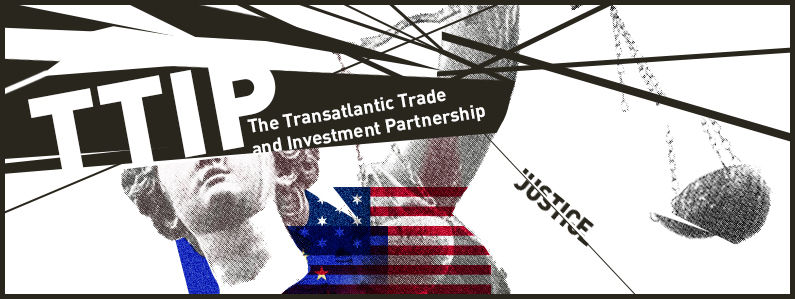
As the 8th round of the TTIP negotiations just ended in Brussels, Access reflects on the state of play of this major transatlantic trade deal.
When the Transatlantic Trade and Investment Partnership (TTIP) negotiations began in July 2013, the first talks of this massive EU-U.S. trade deal remained mostly unnoticed — because discussions were happening behind closed doors. Citizens, civil society, and lawmakers all responded that the process was not transparent.
In response to these concerns, the incoming EU trade commissioner, Cecilia Malmström, promised a “Fresh start” for the TTIP negotiations when she took office in November 2014. Malmström launched her first round of measures to promote transparency in TTIP, which included more open meetings and the publication of several fact-sheets and legal texts. Around this time, the EU Ombudswoman, Emily O’Reilly, decided to launch an inquiry into transparency in TTIP, organising a public consultation in which Access’ participated. The conclusions from this inquiry were presented last month, and the Ombudswoman acknowledged efforts by the trade Commission towards greater transparency but called for more measures to improve public participation, in particular regarding access to negotiating documents from the EU and the U.S.
Access welcomes these recommendations, and we echoed the call for greater transparency during our presentation before U.S. trade representatives and EU Commission officials at the 8th round of negotiations. We explained to the negotiators that “full legitimacy and trust in the negotiation process can only be achieved with full transparency and if mass surveillance programmes are abandoned.” Currently, the work of civil society groups and elected representatives from the EU and its member states is complicated by the lack of access to documents, forcing stakeholders to work on basis of leaked documents. The most recent leak on the e-commerce and data flow chapter from the Trade in Services Agreement – TiSA – revealed the serious threats these trade agreements could pose to fundamental rights, in particular the rights to privacy, data protection, and freedom of expression.
Public participation
Full transparency in the negotiation process would strengthen citizen and stakeholder participation and increase public scrutiny. So far, the European Commission has attempted to improve participation by launching a consultation in 2014 on the highly controversial provision on Investor to State Dispute Settlement (ISDS), which enables companies to sue governments when new laws put their “expected profit” at risk, among other issues – (find out more about ISDS here). That consultation received more than 150,000 responses from citizens, civil society, and companies from both the EU and the U.S. In January, the European Commission presented its long awaited report on this consultation, and revealed that more than 95 percent of the responses demanded that this dispute resolution mechanism be excluded from the TTIP.
In the meantime, several member states have expressed concerns toward ISDS. For instance, the French Parliament recently adopted a resolution calling for the exclusion of the mechanism in TTIP. Faced with this resistance, the Commission acknowledged that “there is a huge scepticism against the ISDS instrument” and decided to revise the Investor to State Dispute mechanism. But the debate on the mechanism is not about to stop. The EU Commission might face a so-called “maladministration” investigation after refusing five leading NGOs access to documents on ISDS. The NGOs have brought a complaint to the EU Ombudsman which will decide in the next few week whether to open an investigation.
Next steps
The Commission still has a long way to go to ensure transparency in negotiations over this massive international trade agreement. It should strengthen the reform efforts it began in November and provide more concrete measures to allow participation from all stakeholders, such as the regular publication of updated documents and negotiating texts from both parties. Transparency will benefit both EU citizens and the negotiators.
Here is the link to Access’ presentation at the TTIP Stakeholders meeting on February 4th.
Find here Access’ submission to the EU Ombudsman consultation on transparency in the TTIP negotiations.
